Did you know that another treatment option for your jaw pain is chiropractic care for TMJ? Not only does it help with the discomfort but receiving chiropractic care for TMJ will also teach you how to conduct some at-home soft tissue manipulation to help your jaw muscles relax and reduce pain.
What is TMJ
Your jawbone and your skull are joined by a sliding hinge called the temporomandibular joint (TMJ). With problems with the temporomandibular joint, the associated point between the jaw and the skull becomes uncomfortable and swollen. In general, the cause of TMJ dysfunction can change, and sometimes no cause can be found.
Temporomandibular Joint Disorder Causes
The cause of a TMJ problem is frequently unknown. An injury to the jaw or joint could be involved. Additionally, other medical conditions could contribute to the development of TMJ dysfunction. These consist of the following:
- Structural jaw issues present at birth
- Arthritis
- Tooth clenching
- Grinding in the mouth on a regular basis
Professionals frequently link a few main factors to the development of a TMJ problem. However, it has not been proven that they are to blame for TMJ dysfunction. These consist of the following:
- Having a poor diet
- Getting little sleep
- Wearing braces
- Stress
- Poor posture
TMJ Disorder Symptoms and Signs
The severity and cause of your discomfort will determine your specific signs and symptoms of TMJ difficulties. An ache in the jaw muscles is the condition’s most well-known symptom.
The following additional symptoms are typically linked to TMJ disorder:
- TMJ site is making popping or clicking noises.
- Stiffness in the jaw muscles and locking of the jaw pain that you may feel in the neck or face
- Malocclusion, which is defined as restricted jaw mobility that causes the upper and lower teeth do not line up correctly,
The symptoms of a TMJ problem could manifest on just one side of the face or both. Sometimes the symptoms may go away on their own. However, visit your doctor to get the proper care if these symptoms persist.
How is TMJ identified?
As was previously noted, the majority of TMJ disorder causes are unclear, making a diagnosis challenging. There are no established tests to diagnose TMJ dysfunction. Your doctor could suggest that you visit a dentist or a specialist to get your condition looked at. If you have signs of TMJ syndrome, the doctor may examine your jaw to see if there is any soreness or swelling. The doctor might also use a few different imaging procedures. These may consist of the following:
- Jaw-related X-rays
- CT scan of the jaw to examine the tissues in the bones and joints
- Using magnetic resonance imaging (MRI) of the jaw, one can determine whether the jaw’s structural problems
There are several different ways to treat TMJ conditions. Your doctor may recommend a number of different treatments, often more than one, to be carried out concurrently.
TMJ Chiropractic Treatment
Chiropractic treatment involves using a short tool or the hands of trained chiropractors to apply a regulated, sudden force to a spinal joint. Chiropractic care, often known as “spinal manipulation,” aims to improve the body’s physical function by enhancing spinal movement. Unfortunately, when most people consider what a chiropractor does, their thoughts immediately turn to fixing neck, back, and spine problems.
Your jaw muscles’ issues will also be helped by this method of treatment. Perhaps the last thing you think a chiropractor could help with is your jaw. Chiropractic care can ease jaw pain, particularly in the temporomandibular joint (TMJ), which is a sensitive area for certain people.
According to the study, certain TMJ modifications may be helpful for the mild treatment of temporomandibular dysfunction (TMD).
How to Get Ready for Chiropractic Care
A chiropractic adjustment requires no special pre-treatment. You should anticipate that your chiropractor will ask you questions about your medical history on your first visit. The physical examination that follows will specifically focus on your spine. Additionally, your chiropractor can recommend additional examinations or testing, such as X-rays.
Temporomandibular Joint Disorder and Chiropractic Care
When someone decides to receive chiropractic care for TMJ, the chiropractor will initially request a medical history, typically along with a family history. The chiropractor can use this information to determine whether a patient’s way of life or repetitive motions may impact their TMJ. Additionally, the chiropractor will analyze your posture, palpate your heart with his hands, and maybe order X-rays to see if your bones are properly aligned.
Following a thorough evaluation, the chiropractor will devise a specific action plan to address the TMJ issue. For example, to target the muscles in the back that affect the jaw, he or she might advise massage therapy. The chiropractor can also demonstrate stretching and relaxation techniques for the jaw muscles. This exercise could be a stress-relieving meditation that relaxes the muscles. They will also discuss utilizing a mouth guard to avoid teeth clenching or grinding while sleeping. Other treatment options such as hot and cold therapy, massage, and other exercises may also be recommended as part of your individualized care plan.
Conclusion
Chiropractors may begin the process of TMJ treatment by reducing stress and spinal dysfunction. The tension on various nerves lowers as the breakage is fixed by chiropractors, which, at that point, lessens TMJ pain. For many people with TMJ issues, ongoing care is necessary to prevent discomfort and other adverse effects. But many TMJ issue sufferers find constant relief from this ailment with regular chiropractic visits.
Do not hesitate to visit Atlas Total Health Chiropractic if you think you might need chiropractic therapy for your TMJ issues or for any other reason. Your health and well-being can be restored with chiropractic care. If you are suffering from TMJ issues, contact Atlas Total Health Chiropractic by calling (866) 668-0108 or contacting us online to schedule your consultation. Discover what we can do for you to assist you with feeling better and restore you to optimal health.



